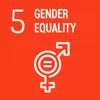1 in 3 women experience physical, sexual abuse: UN
On the International Day of the Elimination of Violence against Women, UN launches 'Orange the World' initiative, shares staggering data to reveal that we need immediate action against this pandemic suffering.

Source: UN Women
On the International Day of the Elimination of Violence against Women, United Nations General-Secretary António Guterres delivered a strong message reminding us violence against women stands in the way of achieving gender equality and sustainable development goals.
“Sexual violence against women and girls is rooted in centuries of male domination. Let us not forget that the gender inequalities that fuel rape culture are essentially a question of power imbalances,” he said in the message.
This world day to stop violence against women and girls is marked annually on November 25. This year, the United Nations is sharing many ways in which the violence and suffering manifests itself in physical, sexual and psychological forms, and the life-altering, adverse consequences women face.
Beginning today, and for the next two years, the United Nations Chief’s UNiTe to End Violence against Women campaign will focus on the issue of rape as a specific form of harm and will encourage people to join the Orange the World initiative.
The United Nations Chief’s UNiTe to End Violence against Women campaign was launched by former UN Chief Ban Ki-moon is a multi-year effort aimed at preventing and eliminating violence against women and girls around the world.
UN Women’s Executive Director, Phumzile Mlambo-Ngcuka, expressed her concerns when it comes to rape specifically. She said the end of the horrendous act would mean eliminating a “significant weapon of war from the arsenal of conflict”.
"Rape isn’t an isolated brief act. It damages flesh and reverberates in memory. It can have life changing, unchosen results – a pregnancy or a transmitted disease," she stressed, adding that consequences of a one-time act can sprawl into damaging long-term effects.
1 in 3 women experience physical, sexual abuse
According to UN reports, a third of all women and girls experience physical or sexual violence in their lifetime, half of the women killed worldwide were killed by their partners or family, and violence perpetrated against women is as common a cause of death and incapacity for those of reproductive age, as cancer, and a greater cause of ill health than road accidents and malaria combined. These are rather grim figures. Based on regions, the data becomes even grimmer.
In the US, more women are abused than not. Based on a UN Women study, 70 per cent of women in the US have experienced physical and or sexual violence from an intimate partner. Intimate partner violence is as high as 65 percent in some parts of sub-Saharan Africa, and around 40 per cent in South Asia, as well as Andean parts of Latin America. In East Asia and Western Europe, more than 16 per cent and 19 per cent of women have experienced intimate partner violence, respectively.
Women who identify with LGBTQIA+ community, migrants and refugees, indigenous minorities, and those living through humanitarian crises, are particularly vulnerable to gender-based harm.
(Edited by Rekha Balakrishnan)








